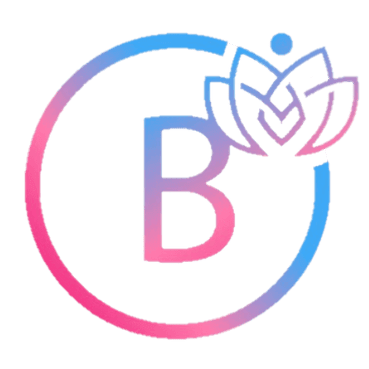
How Grant Writing Can Secure Funding for Your Nonprofit or Small Business (Business Services)

Posted on May 6, 2025
Every visionary entrepreneur and social advocate knows that securing funding is not just about dollar amounts; it’s about harnessing the potential to expand, innovate, and truly make a difference in the community you serve. Many small businesses and nonprofits, particularly those championing underserved communities, face hurdles in accessing traditional financing. Yet, there lies a powerful tool capable of not only meeting these financial needs but also of igniting a movement. Grant writing is that instrument. Although it requires careful strategy and thoughtful storytelling, mastering it can open a myriad of opportunities otherwise unavailable. It’s about crafting a narrative that intertwines your mission with the goals of funders who are eager to support initiatives that align with their values. Grants aren’t merely financial lifelines; they serve as endorsements of your vision, providing credibility and demonstrating to potential investors the robustness of your venture.
Understanding the Basics of Grant Writing
Grant writing is all about telling a story that helps you win funding — whether for a nonprofit or a small business. A strong proposal explains:
- What problem you’re solving
- What goals you want to reach
- How you’ll get there
- How the money will be used
Every proposal includes these key parts:
- Problem Statement – What issue are you addressing?
- Objectives – What do you plan to achieve?
- Methodology – How will you do it?
- Budget – How much will it cost, and how will funds be spent?
When done well, your proposal feels like a plan funders can trust — not just words on paper.
What Makes a Grant Proposal Stand Out?
Great grant proposals don’t just give facts — they tell a story.
✅ They clearly show how your mission aligns with the funder’s goals
✅ They include clear, achievable goals
✅ They share a story that touches hearts and shows impact
✅ They are easy to read, focused, and honest
Tip: Funders want to support people who make change happen. Show them how your project will do that — and whyyou’re the right person to make it happen.
🧾 Types of Grants to Know
There are 3 main types of grants:
🏛 Federal Grants
- Offered by U.S. government agencies
- Great for big projects like healthcare, education, or community work
- Competitive with strict rules and reporting
🏢 State Grants
- Given by state agencies and usually focus on local impact
- Easier to manage than federal grants
- Ideal for regional projects like local jobs or small business support
💼 Private & Corporate Grants
- From foundations and companies
- Less red tape, more flexibility
- Great for innovative or community-centered projects (like tech or sustainability)
How to Find Nonprofit Grants
Finding grants is part research, part networking. Here's how:
- Use websites like Grants.gov, Candid, or Foundation Directory Online
- Join nonprofit associations or Facebook groups
- Attend grant workshops or webinars
- Build relationships with funders (this helps more than you think!)
- Focus on grants that match your mission — don’t apply to everything
Tip: Make sure you meet the eligibility and tailor your proposal to each grant.
How to Win Small Business Grants
Small business grants can help you grow — but you need to be sharp.
First: Do Your Research
- Read the eligibility rules carefully
- Understand what the funder wants
- Be clear about how your business solves a problem
Then: Write a Strong Proposal
- Align your business mission with the funder’s values
- Share a personal or community story
- Show how the money will be used wisely
- Provide a clear budget
- Highlight your team, past success, and readiness
📌 Don't just fill in the blanks. Tell your story in a way that feels real and results-driven.
🔑 Tips for Crafting a Winning Proposal
Want to improve your chances of getting approved?
- Don’t reuse the same proposal for every grant. Customize!
- Speak directly to the grant’s goals and the funder’s mission
- Be honest, clear, and focused
- Include realistic goals and how you’ll measure results
- If you get denied, ask for feedback and revise your proposal
🎯 Even top grant writers get rejected sometimes. It’s not failure — it’s feedback.
⚠️ Why Many People Don’t Get Approved
There are a few common reasons:
- Not reading the rules carefully
- Applying for the wrong kind of grant
- Submitting incomplete or unclear proposals
- Telling a weak or confusing story
- Not showing how the grant will create real change
Even if your proposal is good, someone else's may be better aligned or more compelling.
How to Improve Your Chances
Here’s how to stand out in a sea of applicants:
✅ Match your mission to the funder’s goals
✅ Write with clarity and emotion
✅ Show impact with numbers AND stories
✅ Build relationships with funders
✅ Keep applying — persistence wins
Great proposals come from practice and persistence. You may not win the first round — but you get stronger every time.
📞 Need Help? Bennett Disability & Consulting Group Can Help
We offer:
- Grant writing bundles
- One-on-one guidance
- Business plan templates
- Disability and business consulting
Email: [email protected]
📞 Call: (833) 588-0109
🌐 Visit: BennettDisabilityConsulting.com
Final Word:
Whether you’re helping your community, launching a business, or funding a passion project, you don’t have to do it alone.
Let us help you write your next winning grant proposal — the kind that opens doors and funds your vision. 💡
